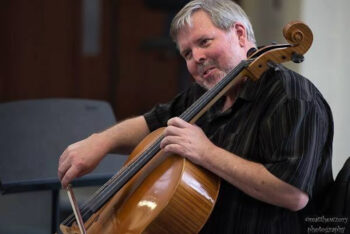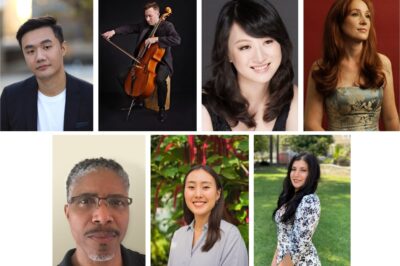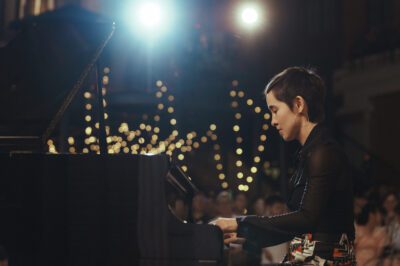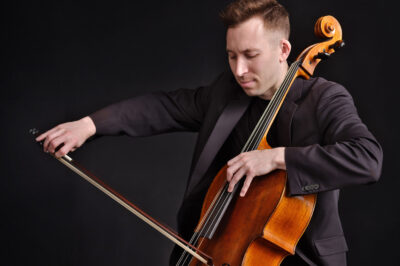Remembering Rick Mooney

By now many people have heard the very sad news of Rick Mooney’s recent passing.
Rick’s long and ceaseless work as cellist, Suzuki teacher, teacher trainer, and director of the National Cello Institute enriched the lives of so many people over the five decades of his career.
As PCM approaches its 40 year landmark, I often reflect on its earliest days as a school. These memories are inextricably linked to memories of Rick, a fellow founding faculty member. Rick came to PCM as a fully developed cellist, teacher, and Suzuki teacher trainer, having studied cello with Eleonore Schoenfeld and Suzuki pedagogy with Phyllis Glass at the University of Southern California.
From our very first PCM faculty meeting in January, 1984 (eight of us, in a church basement, two locations ago), to his retirement from PCM, Rick developed a sound structure of serious teaching, always with an underlying sense of good natured fun.
Rick started out as chair of the string department, and as the school grew, he took on an increasingly active role, holding regular training sessions for cello faculty, who actively participated in cello group classes, both teaching and playing in multiple parts with the students. As Rick said, “I’ll remember forever the first time I played in a really good symphony orchestra, playing a really good piece – that sound, that feeling of excitement. So now, we get our five-year-olds in the cello choir and give them a sense of playing in a big ensemble. And it’s fun. It’s just fun.”
As a violin teacher, I would often sneak in to watch the cello classes, as advanced students and cello faculty played with the younger students, in tiered levels of challenge – so inspiring for the least experienced, and for everyone else. I loved seeing their eyes light up as their simple musical lines melted into that big, glorious cello ensemble sound.
In addition to maintaining a full teaching schedule, Rick was in ever greater demand as a guest teacher and teacher trainer, traveling the world… Australia one week, perhaps Europe the next, Asia, soon after, then back to the US to attend board meetings of the Suzuki Association of the Americas (SAA). He assisted with the publication and revision of the standard Suzuki cello books, and somehow found time to produce numerous cello technique books, as well as multiple volumes of ensembles for cello, offering many of his own arrangements and original compositions.
Rick also helped train the entire string faculty at PCM, offering an official SAA course called Suzuki Principles in Action, which he had helped to develop. His steady leadership and firm commitment to ongoing teacher development provided a solid foundation for the string program.
Many of Rick’s PCM students also participated in the National Cello Institute, now in its 48th year, which Rick founded and directed. This annual gathering of a few hundred cellists of all ages and levels truly embodies Rick’s love of ensemble playing, featuring in addition to ensemble experience for all students, a spectacular cello orchestra of as many as a hundred cellists, involving students and faculty, often conducted by Rick.
Many of Rick’s students developed into fine advanced players, and received many honors through the years, experiencing the rewards of practicing hard: dedication mixed with fun and friendship. Among them are graduates of Juilliard and other top schools, and current members of the Los Angeles Philharmonic and other major orchestras.
Rick had an enormous influence on the development of the string department at PCM, and touched the lives of perhaps thousands of musicians of all ages and levels. He will be mourned and missed by so many, and his contributions to great music making will continue to inspire for generations.
Written by Cynthia Fogg



